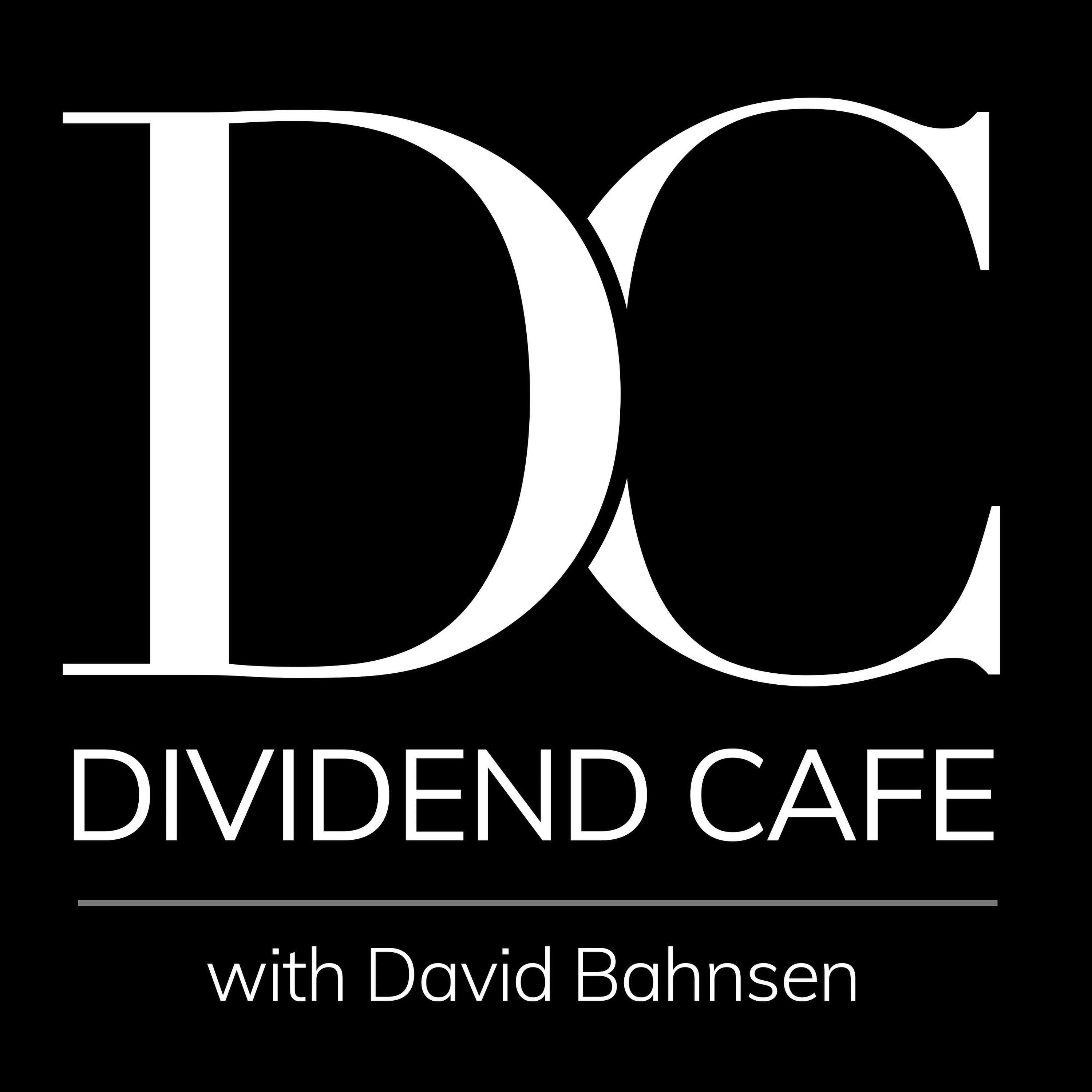Dear Valued Clients and Friends,
With the trade war still front and center in the global economy, earning season three weeks away, and continued questions about the Fed’s plans floating around, why did all market conversations seem to slip into the background this week? Oh yes, the perpetual reality show that is Washington D.C. took over the news this week, and it has led to maybe the most political Dividend Café of recent memory. Now fear not, there is ample coverage of U.S. economic health, monetary policy, and the investment issues near and dear to your heart, but some deeper political-economic commentary is warranted this week. So jump on into the Dividend Café, and we’ll do our best to offend no one, or everyone.
Dividend Café – Podcast
Dividend Café – Vidcast
Politics & Money: Beltway Bulls and Bears
- Well obviously the story of the week is Speaker Pelosi’s announcement that the House was “opening” an impeachment “inquiry” around the President’s phone call with the Ukrainian President, and the possibility that the conversation was inappropriate or teetered around a quid pro quo pressure to get Ukraine to dig up dirt on a political rival (in this case, Joe Biden). The market was so petrified that this may lead to market uncertainty and impeachment that the market went from down 150 points Wednesday morning to up 170 points on the day. This 325-point swing to the upside does not sound like a “concern,” but that is not to say there is not a political concern here. It is simply to say that the markets find it laughable, for now. Why? Markets are priced on earnings, always and forever. Good luck connecting this latest drama to the earnings outlook of America’s top companies.
- The ”betting odds” skyrocketed Wednesday to a 50%+ chance that the House would impeach, and reached a 19% chance (pretty low) that he would actually have to leave office (meaning, a wide array of people believe the House will impeach but the Senate will not convict).

* Strategas Research, Policy Outlook, Sept. 25, 2019, p. 1
The issue will entirely turn on whether or not public opinion moves in the days or weeks ahead. Thus far, it appears that the vehemently anti-Trump percentage of the population is supportive of impeachment, while the rabidly pro-Trump base is not (surprise-surprise). However, the ~20% of the country that fits into neither camp would have to show signs of shifting from being rather starkly anti-impeachment to being in favor of something to turn here. Historical political wisdom indicates that there is a lot of risk here for those supporting impeachment without public support. This is in flux, of course.
- Does any of this benefit markets? My contrarian view is that this makes the President more desperate for a deal with China. So there’s that. I will leave it there, for now. But I think it also hurts the chances of NAFTA 2.0 passing, which may provide the President a chance to campaign against Democratic leadership in rust belt states, but also holds back the progress of NAFTA 2.0 (USMCA) passing.
- The winner of the week? Senator Elizabeth Warren’s name is not involved in the DC drama at all. No matter how this plays out for President Trump, in no scenario is it good for Vice President Biden. There is certainly a lot of ambiguity around who it ends up hurting worse – Trump or Biden – but there is no doubt that it doesn’t help either of them. Warren, on the other hand, benefits from the momentum of rising in the polls even before this broke, and now the possibility that her leading opponent is caught up in a story that also hurts her potential general election foe. How does that get any better for her? But perhaps there is other news for Senator Warren not so benign?
Mandatory Fed Discussion
The market at large is reliant enough on multiple expansion right now that the Fed cutting rates further is probably the biggest thing an index investor could hope for at present. For dividend growth investors like us, the Fed still has a role in the short-term valuation on risk assets. The difference is that we are not reliant upon Fed actions causing a re-pricing of risk to drive returns. Rather, our focus is on organic free cash flow growth and the company’s propensity to act on that free cash flow growth by returning it to shareholders via dividends. Surely the Fed has some impact on this whole process, but far, far less than today’s market index investor.
An economic reality check
I am sure that the connection between an extension of this economic expansion and business investment/capex began appearing in these Dividend Cafe pages two years ago. The transition of that from a positive outlook to a concerning one began as the trade war saw new levels of intensity in late 2018, and notably turned in the middle of 2019. My concern over a decline in business investment and what that means to economic expansion remains forefront in my mind. There are data points in the last few months (all as a result of trade war uncertainty) around manufacturing, capex, new orders, and industrial production that have warranted caution, if not outright concern.
But avoiding positive data is just as irresponsible as avoiding negative data. And that fact of the matter is that while people love to wallow in the brilliance of their pessimism and astuteness of their doom & gloom (all of which has been intellectually embarrassing for too long to count), manufacturing production recently came in as the best number in five months, and capex has all of a sudden increased a full percentage point. The jobless rate and consumer confidence have never waned from being positive, and even industrial production posted a solid number this month.
Look, I understand people believe it is “courageous” to make a stubborn and convicted call on the direction of the economy. But the reality is that there is plenty of positive data to throw a wrench in the outlook of the pessimists right now. And for those who believe “this is the greatest economy in history” – there are all sorts of warning signs. A reserved and humble outlook is prudent and responsible because the data is pointing to such. I believe U.S. economic health is solid, with trade war concerns warranting a great deal of monitoring. So that is what we see, believe, and do.

Summary of the economic outlook
So while the preceding section reconciles the mixed data in the present set of economic circumstances, the outlook for the future essentially can be summarized as follows:
(1) The trade war and trade uncertainties are weighing on certain economic activities, most notably business investment, capex, and manufacturing
(2) The pressure on those above things eventually leads to pressure on corporate profits
(3) Corporate profits are the mother’s milk of economic activity – wage growth – job growth – etc.
Ergo, a longer-term positive outlook on economic activity, jobs, etc. requires a resolution to the trade uncertainty.
Are households vulnerable to equity prices?
One of the data points myself and others have pointed to as a plus in the current economic milieu is the improvement in U.S. household balance sheets, primarily less debt as a % of assets than in the past. This is true, and it is indeed noteworthy. But the composition of American household balance sheets is important. The debt-to-assets ratios of the past included assets that were far more sensitive to family businesses, whereas today the percentage of assets found in public equities is higher than ever. Why is this a bad thing? It isn’t, necessarily. But it does speak to the fact that the economy is more leveraged to public equities, and that past leverage rates and their impact on consumer spending, for example, may not translate to today. In fact, I find it rather safe to conclude that household behaviors would alter dramatically in a sharp drop in equity prices, meaning a greater risk is present than the mere leverage ratio indicates.
Small-cap warning
25% of the companies in the Russell 2000 small-cap index had no profits five years ago; that number is 37% today. Perhaps this indicates a deterioration of quality in the earnings of the entire stock market? Well, with large-cap companies only 12% have no earnings now, vs. 16% a few years ago – a reversal of fortunes!
I offer no forecast on how small-cap index investors will do in the years ahead, just a comment that the risk profile of such a strategy has changed substantially. And this is not a comment about all small-cap investing – just the indexed kind …
Big word jargon to describe Fed failures
If you have followed the story over the last week or so about failures in the “repo market,” I am sorry. I hope it has aided your nighttime sleeping efforts. But is it a real story? You bet it is, but it is a story of liquidity shortages, and Fed mismanagement, not a story of economic systemic risk. The U.S. Treasury is rebuilding its general account and took out $150 billion of liquidity in recent weeks, money that did not get re-circulated to the banking system because the Treasury needed to re-deplete cash balances after recent debt ceiling fights with Congress.

The Fed’s balance sheet has declined enough that they were unable to offset this liquidity drain and it created instant disarray in the repo market. Excess reserves have continued to shrink, though they remain far in excess of pre-crisis historical precedent. So what did the Fed do wrong? It is simply a mis-matching of timing between the Fed’s balance sheet reduction of the last few years and the required reserves in the economy. Chairman Powell referred to their plans last week as “organic balance sheet expansion,” as he wisely wanted to avoid the political and technical error of calling it “QE4” (indeed, it is not, yet). But the excess reserves have shrunk as money demand growth has accelerated, and to avoid a liquidity crisis (textbook different from a real solvency crisis) I expect the Fed to move faster than many expect to stave this off.
(That wasn’t so bad, was it?)
Chart of the Week
An absolutely fascinating chart on the role Quantitative Easing played in boosting the narrative of “passive/index” investing being performance-superior to active managers …

The unprecedented era of multiple expansion out of a reduced risk-free rate and liquidity for all seems to have helped, well, everyone. But the “everyone gets a trophy” QE era has ended. Now what?
Quote of the Week
“We cannot absolutely prove that those are in error who say society has reached a turning point – that we have seen our best days. But so said all who came before us and with just as much apparent reason.”
~ Thomas Babington Macaulay, 1839
* * *
A crazy week in the world, no doubt, but hopefully an enjoyable final weekend of September awaits!
Those who know me know I have never been much of a dog guy (or any kind of pet guy), but I am pretty into my kids and my wife, and, well, I stand no chance against the wishes of my family. Plus, I do love British Prime Ministers who saved the world (and in the case of Winston Churchill with the Nazis and Margaret Thatcher with the cold war, I mean that literally). So last week our family added Thatcher to join his big brother Winston (who joined us last year) in the Bahnsen casa. The kiddos are happy, the puppies have each other, and I like the names. Winners all around.

At The Bahnsen Group we can’t save the world like Winston Churchill did or permanently alter the power centers of the west like Lady Thatcher, but we can work diligently to take care of our clients. And to that end we work, and work, and work. Have a wonderful final weekend of September … Q4 starts next week!
With regards,

David L. Bahnsen
Chief Investment Officer, Managing Partner

The Bahnsen Group
www.thebahnsengroup.com
This week’s Dividend Café features research from S&P, Baird, Barclays, Goldman Sachs, and the IRN research platform of FactSet












